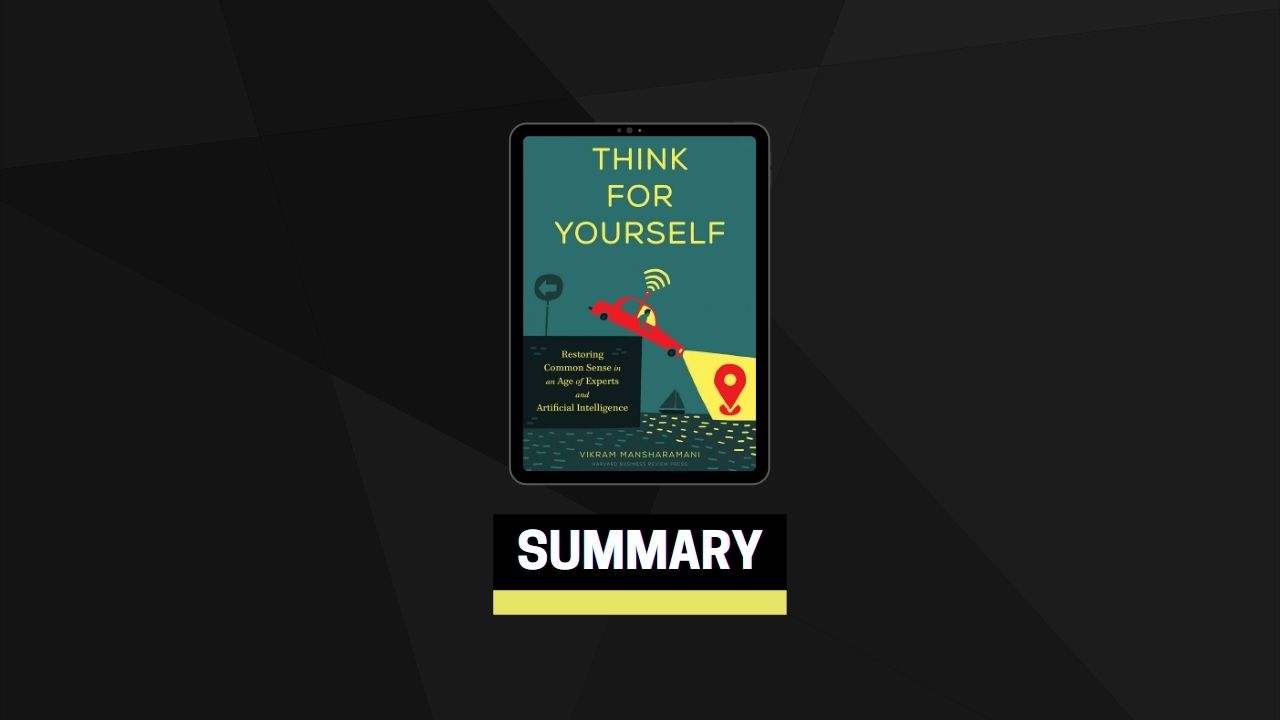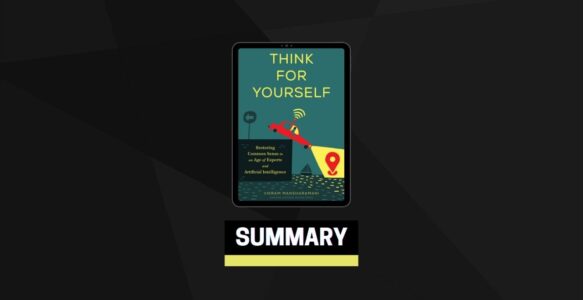The Promise and Perils of Focus
Too much focus and you suffer from tunnel vision and ignore a great deal, some of which may have been useful. Too little and you become a scatterbrained generalist, a jack-of-all-trades and master of none. The key is to actively and intentionally manage our focus in a manner appropriate for our own objectives.
We need to be cognizant of our own focus but also the focus of those upon whom we have chosen to outsource our thinking. And when it comes to the omnipresent technology in our lives, we must open our eyes and take notice of the subtle, hidden, and influential management of our focus by algorithms and artificial intelligence. We are prone to enter focus bubbles in ways that might not have been possible without technology. When we outsource, we give up the framing of key decisions.
Just think about how historical in-person shopping experiences for books differs from today’s more common online experience. Sure, online searching is much easier than shuffling through bookshelves. In fact, algorithms will even feed you suggestions of other books that you may find interesting. Fabulous, right? Showing you what you’d likely want to buy.… Another way to think about it is that sifting through bookshelves may lead you to find books on different topics, enabling fortuitous discoveries that enable differentiated thinking. The online algorithm focuses on your immediately revealed preference as indicated by your searches. Neither is necessarily better, but if we’re unaware of the costs that accompany the benefits of online search, we’re prone to miss possibilities.
Because the use of online news alerts and information portals actively manage our focus. They channel our attention toward topics we’ve expressed an interest in via our clicking, just like the use of online book shopping manages our focus via recommendations of books purchased by others like us. By flipping through a newspaper or magazine, we are forced to skim headlines. The result is exposure to a broad range of topics and news on potential areas of interest that didn’t make it through the technological focus filters. Actively choosing to consume information from non-filtered sources also has another big benefit: it generates exposure to a diversity of opinions and views, allowing us to at least partially depart from the echo chamber of consuming news that agrees with our own views.
Mindfully Manage Focus
The fundamental problem with employing help to make decisions—regardless of whether it is from focused experts, algorithms embedded in technology, or bureaucratic rules—is that we tend to mindlessly adhere to the guidance of these focus managers. This is a subtle and often hidden way through which we stop thinking for ourselves. Managing focus is a critical role that should be done with intention and full awareness of the constraints facing those upon whom you may be dependent.
Imagine you find yourself on the street in the pitch black and completely lost. Along come experts and technologies wielding a much needed flashlight, but a light that only they operate. By looking at the spots where they shine the light, we gain a view of the terrain and may even find our way. But by controlling the spotlight, they’re controlling where we focus—which is not by itself bad. It has the potential to mislead, however, if we blindly assume the spotlight is shining in the optimal spot.
Be Mission-Oriented
Proposing a mindful approach to focusing on goals (rather than generalized optimization or maximization) runs contrary to the conventional wisdom. Regardless of whether we’re talking about health care, airline security, or money management, the prevailing logic is to stop illness, identify bombs, and maximize returns. But what if these task-oriented pursuits, using the language of systems thinkers, produce feedback loops that make the goal less achievable? What if the very manufacturing of electric cars accelerates climate change?
The narrow task-oriented approach many of us adopt in our day-to-day decision making can lead us astray. It’s important to stop and reconsider the purpose of our efforts. Why are we doing what we’re doing? Likewise, in certain domains it may make more sense to proactively satisfice. We need to remember we are trying to win wars, not battles.
Triangulate Perspectives
Every perspective is biased and incomplete. So why settle for adopting your natural default perspective as the only one you utilize to make decisions? Rather, it would make sense to seek out, appreciate, and develop multiple perspectives to help you shed light on the topic of interest. The key is to triangulate a version of reality from multiple perspectives.
We can all generate insight from seeking alternatives to our own perspectives. For hundreds of years, the Roman Catholic Church utilized the position of a devil’s advocate to argue why a person was not worthy of sainthood, despite the evidence being presented. Perhaps we should all employ a devil’s advocate to help us navigate life’s tough calls.
There are plenty of dots in the world today—and all of us are generating more each day. The real, sustainable know-how we must all develop is the ability to connect them. To lift our heads up and notice the context. And to constantly question underlying assumptions, thinking for ourselves independently and not blindly relying on the opinions of others.
Keep Experts on Tap, Not on Top
We can and should retain control and ownership of our problems and decisions, tapping experts for help as needed. And experts need to understand that they only see a portion of the entire picture, meaning their incomplete perspective should allow for a collaborative relationship with their clients rather than one in which they dictate a process.
We need to think of ourselves as an artist preparing a mosaic. Experts provide fragments of tiles that vary in color and size. But forming the image is our responsibility, taking insights on an as-needed basis from those best suited to provide information and analysis.
Navigating Uncertainty
When navigating uncertainty, it’s best to think in terms of multiple possible futures. Prediction can be productive, even if it isn’t accurate. The key is whether the predictions helped you think more deeply about the present and how to make decisions in the face of an ambiguous future.
Rather than shunning ambiguity, embrace it. Thinking through possible futures enables one to spot possible opportunities buried in the uncertainty as well as to identify lurking risks. Uncertainty and ambiguity enable both innovative breakthroughs and spectacular failures. Engage deeply with possible scenarios while retaining broad perspectives. Employ systems logics to connect dots and consider feedback loops.
Self-Reliance in the Twenty-First Century
In an age of experts and artificial intelligence, depth of expertise must be balanced with breadth of perspective. In educating future leaders, this means we must focus on developing critical thinking capabilities that allow us to evaluate our default operating assumptions. Liberal general education must retain a role and must not be sidelined by today’s short-term infatuation with skills-based training.
Celebrate ignorance and fresh eyes. Independent, unbiased thinking that is free from the baggage of historical experience need not be dismissed as useless. In fact, some of the most impressive individuals in numerous walks of life were successful precisely because they lacked the experience that might otherwise have prevented their differentiated thoughts.
Conclusion: Restoring Common Sense
Dots are everywhere. The real, sustainable know-how we must all develop is the ability to connect them. To lift our heads up and notice the context. And to constantly question the underlying assumptions that we retain as “true,” thinking for ourselves independently and not blindly relying on the opinions of others.
Doing so is modern day common sense. For as E. O. Wilson, the legendary biologist has said: “We are drowning in information, while starving for wisdom. The world henceforth will be run by synthesizers, people able to put together the right information at the right time, think critically about it, and make important choices wisely.”
The future, it seems, belongs to those who think for themselves.


